The introduction of the European Union’s Artificial Intelligence Act (AI Act) marks one of the most significant regulatory developments in recent years, fundamentally affecting how companies in Poland design, deploy, and use AI systems. Effective from February 2, 2025, the AI Act establishes uniform rules across the EU to ensure safety, transparency, and accountability in the field of artificial intelligence. Poland is gradually adapting its national legislation to these requirements, with full implementation expected by 2027.
Key Elements of the AI Act and Implementation Timeline in Poland
- February 2025 – Prohibition of particularly harmful AI practices, such as mass biometric surveillance and behavioral manipulation.
- August 2025 – Entry into force of provisions on market surveillance, supervisory authorities, general-purpose AI models, and penalties for non-compliance.
- August 2026 and 2027 – Obligations related to high-risk AI systems, including those used in healthcare, education, and the justice sector.
Polish Ministry of Digital Affairs is preparing a national AI law to complement the EU regulation and establish domestic supervisory frameworks.
Practical Recommendations for Companies Preparing for AI Act Compliance
Identify and Classify Your AI Systems
Begin by thoroughly analyzing which solutions in your organization qualify as AI systems and whether they fall into the high-risk category. For example, AI tools used in recruitment, medical decision-making, or public services are subject to stricter rules.
Conduct Risk and Compliance Assessments
Assess the impact of your AI systems on user rights and safety. For high-risk AI, implement risk management procedures and maintain documentation demonstrating compliance with legal requirements.
Implement Transparency and User Information Policies
The AI Act requires that users are clearly informed when they interact with AI, especially if AI generates content or makes decisions affecting their rights. Develop clear disclosures and labels to meet this obligation.
Establish Monitoring and Incident Reporting Mechanisms
High-risk AI systems must be continuously monitored for proper functioning and potential incidents. Setting up an incident reporting system enables prompt responses and damage mitigation.
Train and Upskill Your Teams
Regular training on new legal requirements and responsible AI use is essential for employees managing or interacting with AI systems. This knowledge supports effective oversight and operation.
Leverage Regulatory Sandboxes
The AI Act allows companies to test innovative AI solutions in controlled environments (“regulatory sandboxes”) under supervision. Participation in such programs can facilitate safe innovation and regulatory compliance.
Engage Interdisciplinary Teams
Successful AI Act compliance requires cooperation between legal, IT, compliance departments, and management to ensure comprehensive risk and compliance management.
Why Act Now?
Compliance with the AI Act is not only a legal obligation but also a strategic advantage, enhancing trust among clients and business partners. Transparency, safety, and ethical AI use are increasingly critical competitive factors. Early adaptation helps avoid severe penalties, which can reach up to 7% of the company’s global annual turnover or €35 million.
Moreover, Polish authorities plan to support AI investments through funding and loan programs aimed at developing digital infrastructure and skills, providing additional incentives for digital transformation.
Conclusion
The AI Act is a comprehensive regulation setting clear standards for AI use in Poland and across the EU. Companies should start taking action immediately—from identifying AI systems and assessing risks to implementing transparency policies, training staff, and establishing monitoring processes. These steps will ensure legal compliance and strengthen market position by fostering responsible and secure AI deployment.
